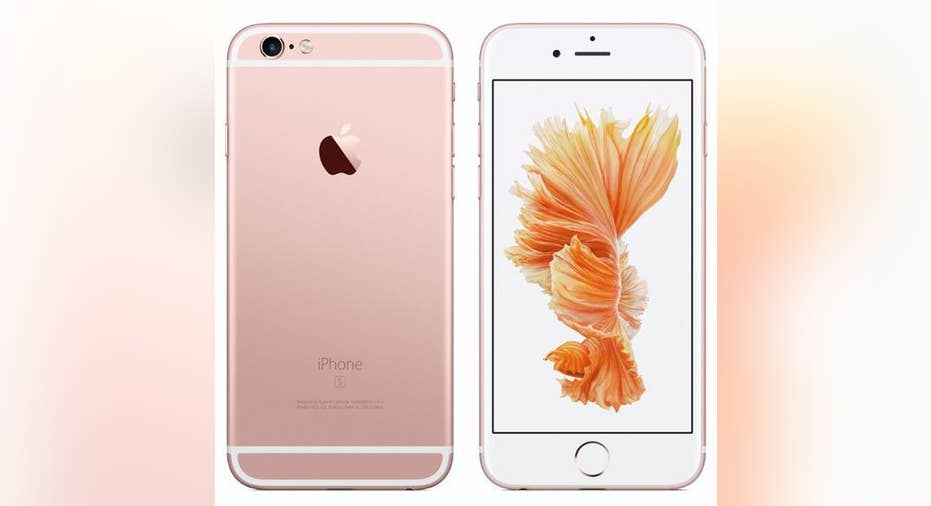Why TSMC Is Likely to Win the 2017-2019 Apple Inc. iPhone Chip Business

The iPhone 6s came with either a Samsung or a TSMC built processor. Image credit: Apple.
It has been widely reported that Apple has chosen Taiwan Semiconductor Mfg. Co. Ltd , commonly referred to as TSMC, to manufacture its next generation A10 processor. Although there have not been reports around whether the Taiwan-based chipmaker has won Apple's next generation A11, A12, and A13 business, I believe it will.
I will also go a step further and argue that not only will TSMC be "looped in" for the A11 and A12, but I believe that TSMC will win those processors exclusively. Here's why.
The 10-nanometer A11According TSMC co-CEO Mark Liu on the company's fourth quarter earnings call, TSMC intends to start the 10-nanometer node with "a very high market share" and the company "intend[s] not to lose it." I suspect that Qualcomm will go with Samsung exclusively at the 10-nanometer node, so in order for TSMC to have "very high" share, it's probably necessary for it to win virtually all of the Apple business at this node.
The 7-nanometer A12, A13TSMC has made it clear that it intends to go into mass production on what it refers to as the 7-nanometer node in the first half of 2018. This technology is expected to deliver improved performance/power consumption over the 10-nanometer node while at the same time delivering a roughly 1.6x improvement in logic density.
A Samsung rep, on the other hand, told EETimes that "10 [nanometer] will be a much longer node than other foundries are claiming it will be. We think 7 [nanometer] has to be defined and optimized to be cost effective to the masses, not just the high margin products."
It is likely that Samsung's "10-nanometer" and TSMC's "10-nanometer" nodes will be comparable in terms of transistor area (TSMC reportedly claims that its 10-nanometer will be denser, though).
Interestingly Samsung seems to be planning for two variants of 10-nanometer, one known as 10LPE (an early version with lower performance) and 10LPP (a later one with greater performance). I suspect that Samsung will transition to 10LPP by the time TSMC moves to 7nm. Even if Samsung matches TSMC's 7-nanometer in transistor performance with a move to 10LPP, TSMC should have significantly lower transistor area, allowing chip designers to pack more into a given chip footprint.
This apparent technology superiority on TSMC's part in the 2018-2019 time-frame leads me to believe that Apple will choose TSMC for both the A12 and the A13.
If I'm right, this is good for TSMCApple brings a lot of volume to the table, and if TSMC can capture the bulk of, if not all of, it, then TSMC should have a "guaranteed" large customer for its latest manufacturing technologies for several years to come. This should allow the company to more confidently invest in research and development for future technologies beyond even the 7-nanometer node.
The research and development spending required to fund future technologies is only going to go up from here, which means that the financial bar to continue funding future technologies will only continue to go up. My view is that TSMC should be set for the foreseeable future, but Samsung Foundry -- even though it appears to have its own captive volumes and Qualcomm's volumes -- is on shaky ground.
The article Why TSMC Is Likely to Win the 2017-2019 Apple Inc. iPhone Chip Business originally appeared on Fool.com.
Ashraf Eassa owns shares of Qualcomm. The Motley Fool owns shares of and recommends Apple and Qualcomm. Try any of our Foolish newsletter services free for 30 days. We Fools may not all hold the same opinions, but we all believe that considering a diverse range of insights makes us better investors. The Motley Fool has a disclosure policy.
Copyright 1995 - 2016 The Motley Fool, LLC. All rights reserved. The Motley Fool has a disclosure policy.



















